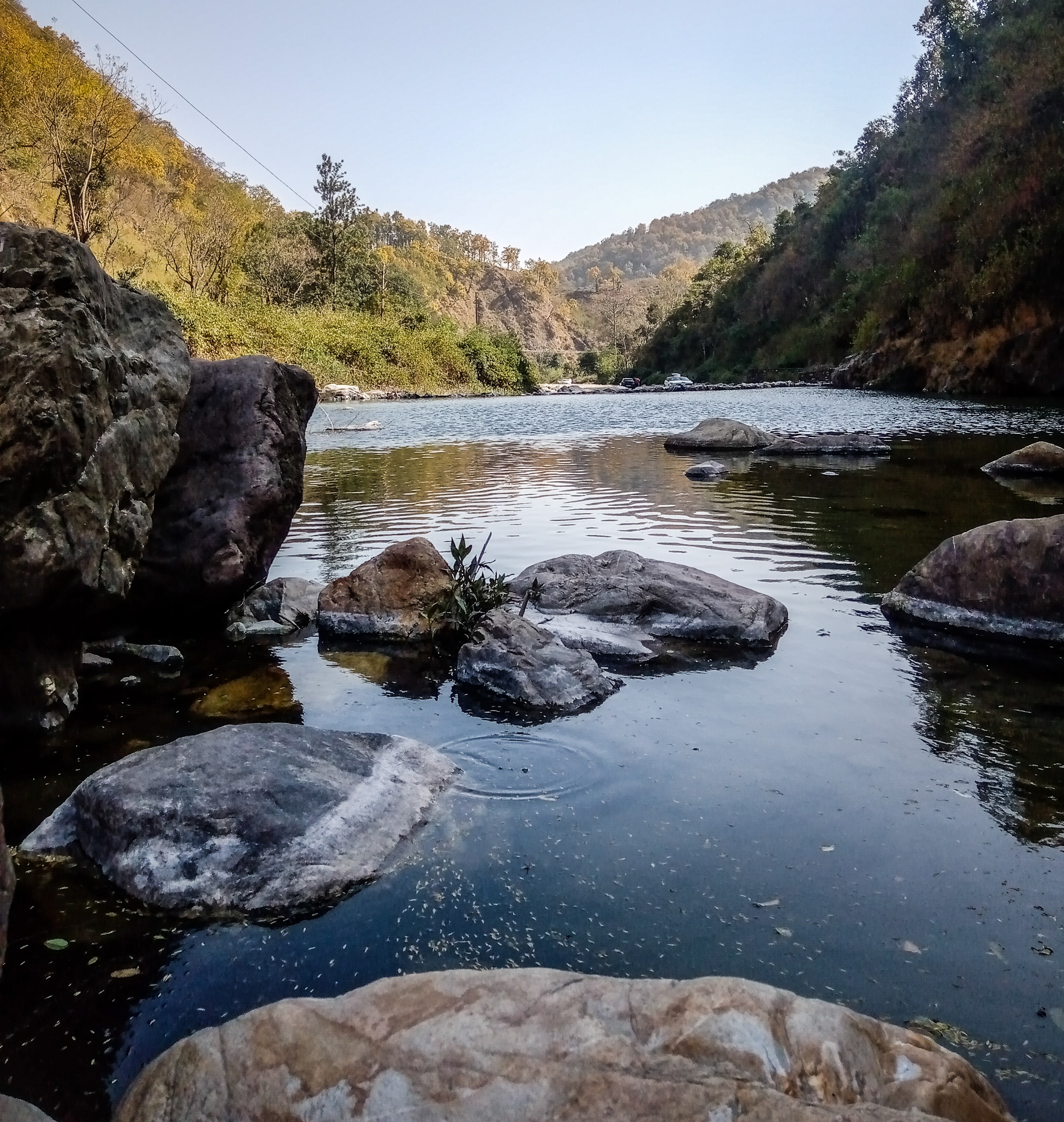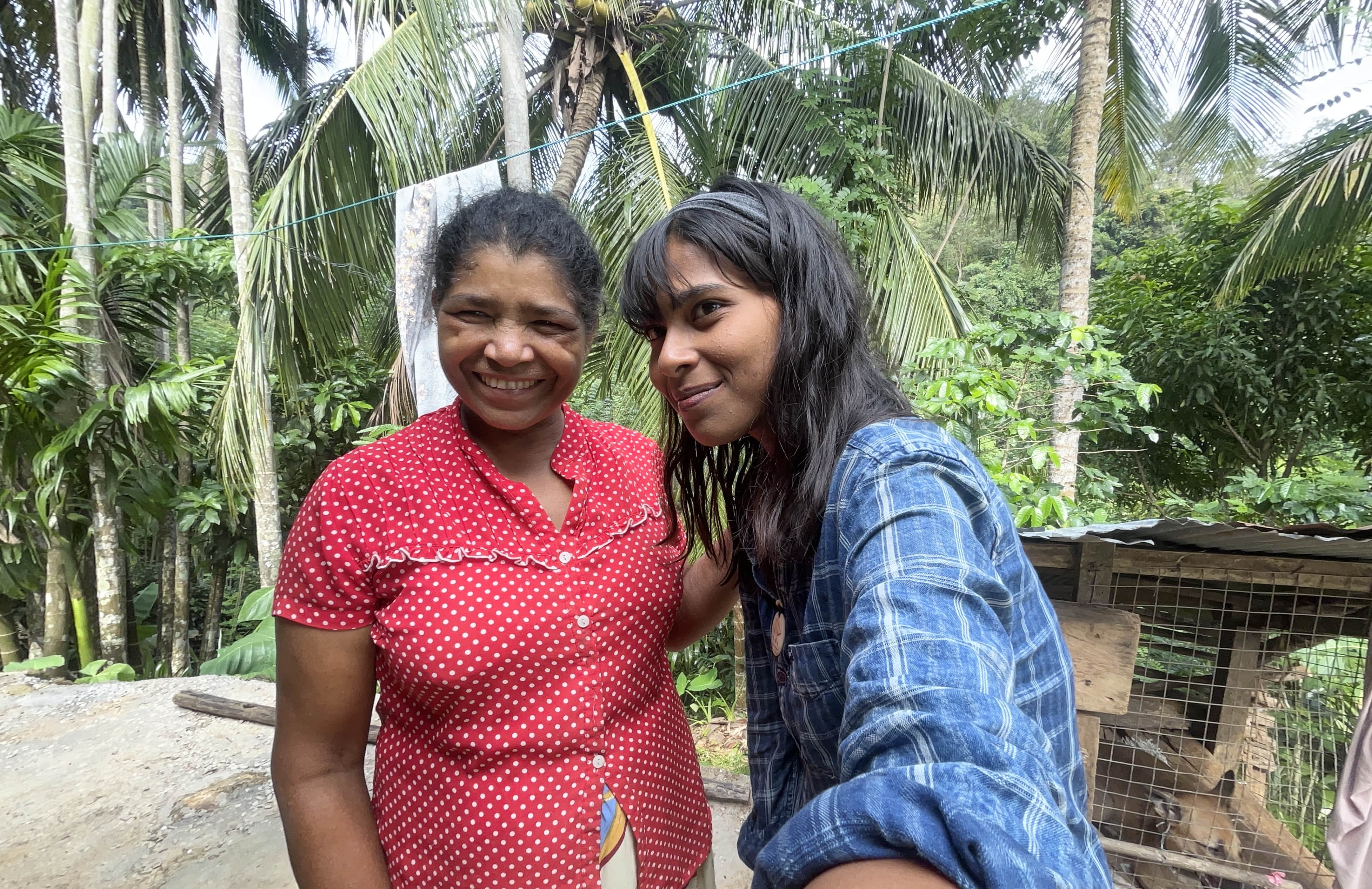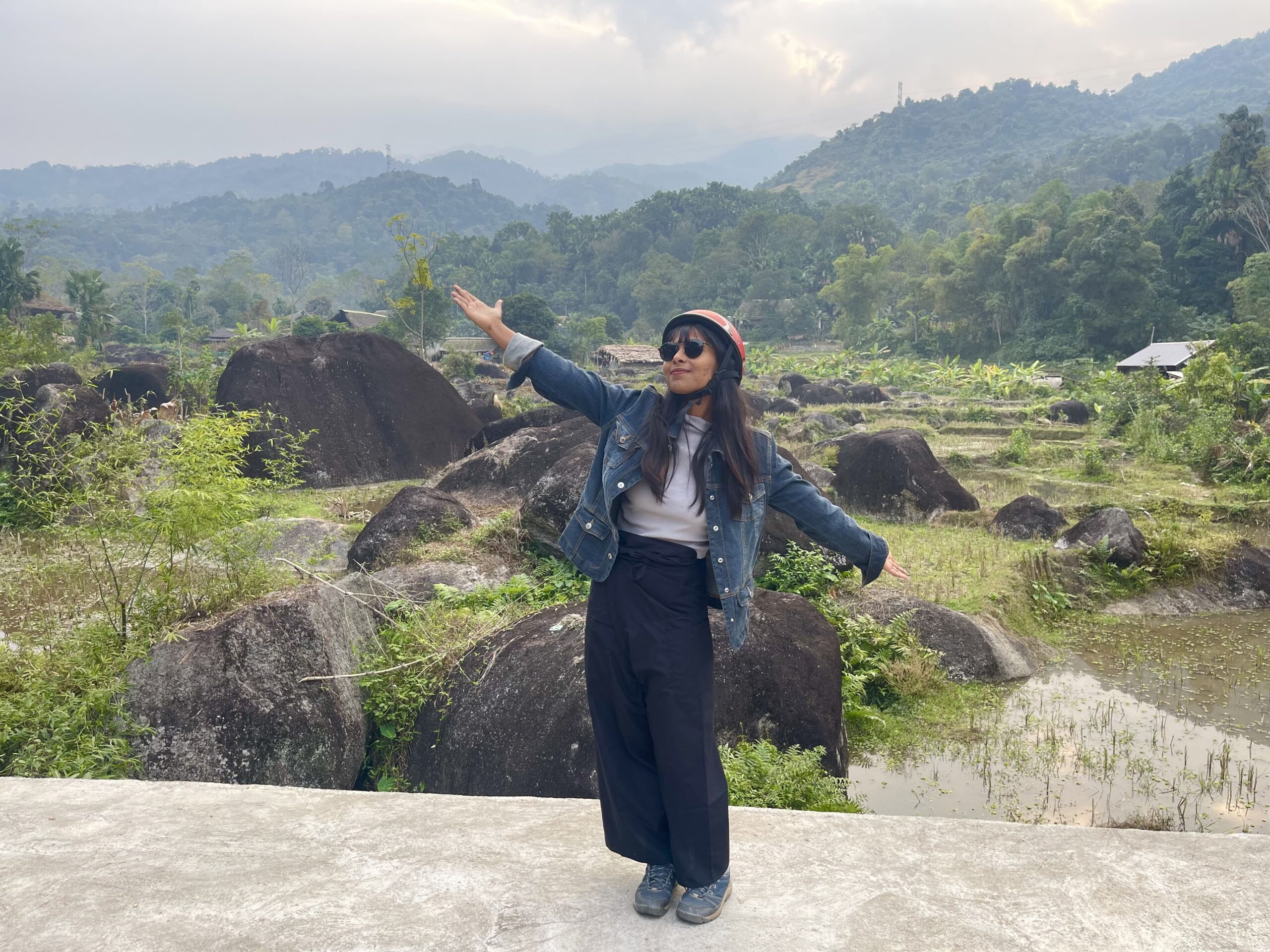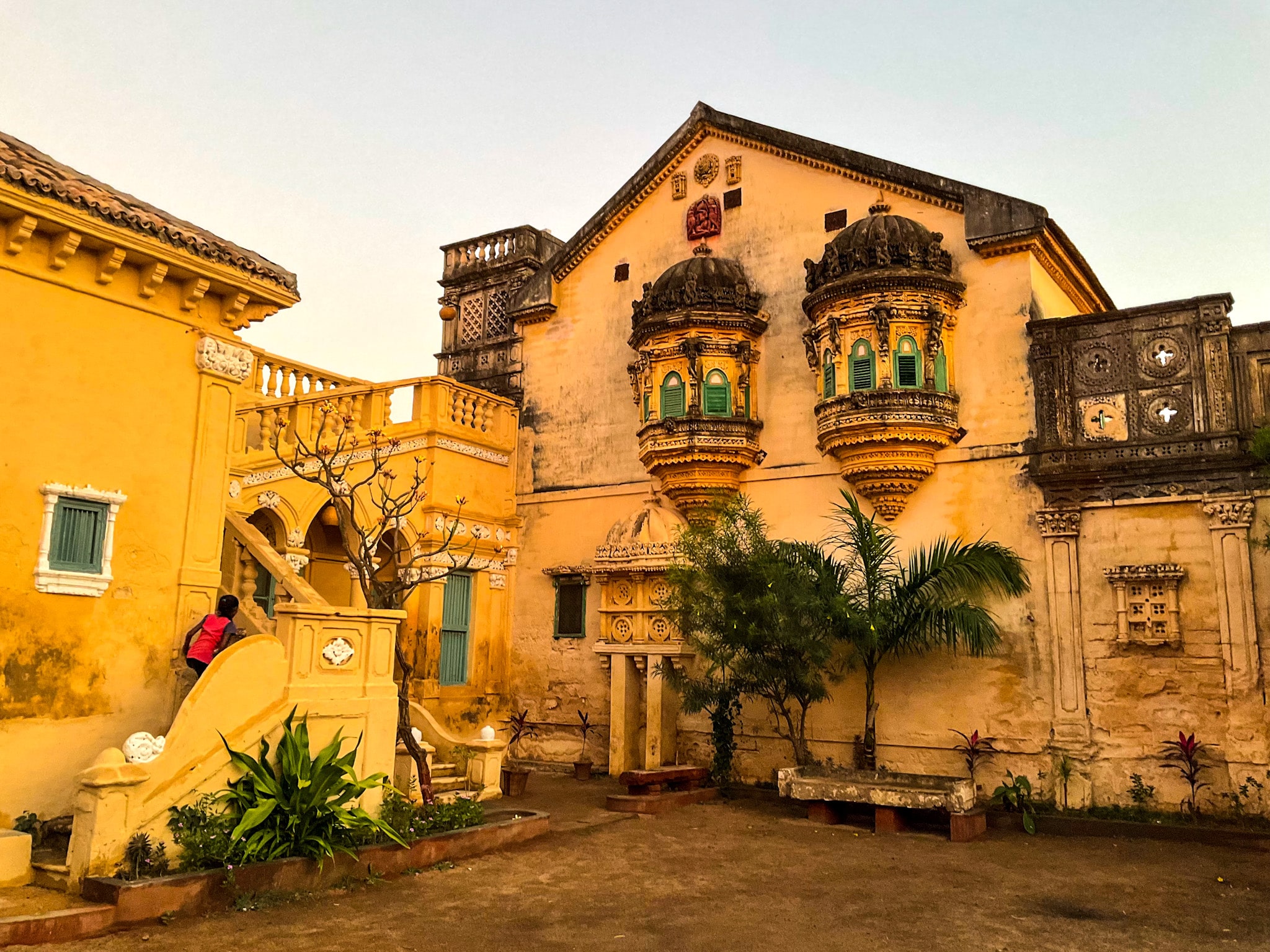In the jungle of Uttarakhand, I thought of death for the very first time. The power of thoughts around death can be staunch and steep. A tiger, was it?
I am probably the only person who didn’t go for the Jim Corbett Safari in Uttarakhand, despite living in the vicinity. But actually, I did. It wasn’t a package safari though. It was more of a ‘friends wandering around in a car at 3 am and spotting a leopard less than 15 meters away’ kind of safari. The kind I prefer.
But before I get into all this, let me digress a bit.
We tend to undermine the things we generally have in abundance. We crave things that require a lot of effort from our end. But how about looking back at the resources that are very much at our disposal, yet need only a little bit of consideration on our part? Even though truly eco-sustainable places are getting scarce every single day, commercialized by the commercial aspects, there are still some places that take sound care of the hygiene of nature around us. The possibility of finding such places promoting minimal plastic use is thin on the ground.
Even though some places, like this campsite in Dugadda I volunteered in, are conscious of the natural necessities that need to be incorporated, it came as a shock to me that they burn plastics! When I confronted them on this point, they seemed not to have a clue about the alternate ways of plastic disposal. And that really is the case. What to do if we don’t burn? – that’s the question I get every time I run into such situations. Okay, at least don’t call yourself ‘eco-sustainable’. That’s misleading!
I hate to start writing about a place, or an experience in this way. The discomfort of ‘eco-sustainability’ literally was the primary thing I got out of the experience of volunteering in this campsite, and for many years to come, I will face the same again and again, the so-called ‘eco-sustainable’ places bothering me with their branding.
But we will talk about that in a different article. It’s not exactly relevant to this. But it’s always relevant.
Also read – Covid, A Lie – The Ashram Folks in Kausani
Dugadda – A Little Town in Uttarakhand

Situated around 25 km away from the cantonment hill station Lansdowne in Uttarakhand, Dugadda is a quaint town on the banks of Khoh, that takes a different name somewhere around Ramnagar. Being near the north gate of Jim Corbett Tiger Reserve, the town moves to its more forestry self towards Aamdali. From the bus stand, an old British market, a few houses (both old and new coexisting), and a bridge where women dry out colourful clothes in sunlight make up the initial part of the town.
But beyond the daily chores of a town starts a long stretch of jungle with river Khoh gliding alongside. You will see some locals living in makeshift tents on the pavement. A permanent residential condition for them, engulfed by the intensity of a dense forest. Dugadda is 15 km away from Kotdwar, the commercial hub of Pauri Garhwal. But before Kotdwar got connected via railway, Dugadda used to be the centre of business and communication in the Garhwal region. People here are so welcoming that on my first day, a local woman who runs a grocery store, offered to take me around her village.
The sound was prominent. A roar! Then again, and again! The goosebumps that came with my first brush-up with the wild can never be expressed in words. That was the first time the thought of death knocked at my tent, both literally and figuratively.
Also read – Best Places to Visit in the Pine Forests of Lansdowne
The Campsite along River Khoh
Before you wonder where the campsite fits in in all of this, imagine a guava orchard on miles and miles of green and a raw magnetic (I would rather say majestic) leafy kingdom surrounding the orchard. If you are a daring soul on her/his way to mastering wildlife, imagine this: leopards coming back and forth while you sleep inside your tent at night. Tents are pitched all over the campsite with all the basic amenities you may need to experience the camping lifestyle. Now, barking deer, tigers, leopards, and a plethora of different species of birds frequently come for a visit to the campsite (tigers are less frequent).
Yet one time three tigers came together from three different directions, growling from each end to mark their territory – a story I have heard from a local. As the campsite is in close proximity to a riverbed, the calm and serene atmosphere of a naturally articulated setting is the goldmine for seekers. Animals come for a bath quite often. You can bathe there as well, maybe not with the animals!

If you walk along the banks of the river, you will come upon the spot from where you can try out cliff jumping. The water is deeper here than the stretch right in front of the entrance to the campsite. Huge stones here and there can provide you with a home to meditate and rejuvenate in such wild yet peaceful surroundings.
Beyond the stipulated boundaries of the campsite, numerous hidden trails lead to numerous hidden unlabeled treasures. An abandoned village (the ghost village) is a trek through the rusty paths of the forest. Trek for a few more kilometres and you will reach a beautiful village Jogiyana and the friendliest of the people will greet you in utter exuberance. The trails will lead you to all kinds of places that remain unexplored by the general crowd.
The usage of plastic is, as it should be, minimal. Hanging from the tree is a creative plastic bottle cut in half with a painted smiley face. From the tent, you can hear the breezy whispers of the wind and the tingling bell-like sound that comes from a wall-hanging (styled in ‘chota’) in the reception area. And at night, the animals (the barking deer in particular) will whisper in sharp outbursts from the outlying paths of Jim Corbett. You will wake up and go to bed in the midst of chaos you are more likely to cherish. The vibrancy of green, as a colour, in its diverse shades and the leaves shining in new sunlight everyday – this is the place for the explorers searching for the food of exploration.
Every morning I made my peace with the hammock we had in the garden area, wrote articles, and helped in updating the website for Camp Advait in this Garhwali region of Uttarakhand. The volunteering required 3 hours of my time in a day and the rest of the day elated itself with hiking, communicating with the locals, and learning about the place and myself. My world was a three-bedded (hence three sets of pillows and blankets) rusty-green tent and three Bhutia dogs – Django, Chotku, and Mastu (a two-month-old puppy).
The owner of the campsite was such a dynamic person that he took me to Lansdowne for a day trip the very first day we met. Later on, I learnt so many curious things about him that it completely justified the ‘dynamic’ tag I just gave him! He doesn’t pay his staff. He doesn’t pay the vendors for pretty much everything he is supposed to pay for. Yet he is a high-court lawyer!
Also read – How to Spend the Best Time in Munsyari
The Leopard Shit Trail in Uttarakhand

Gurgaon, a village blurred out of the map of life. Gurgaon, a name unheard of. Gurgaon, a ruin devoid of celebration.
While the famous destinations near Dugadda generally are Lansdowne and Jim Corbett Tiger Reserve, the hidden gems are scattered all over Garhwal. One such beautiful takeaway is an abandoned village Gurgaon, lost in time and memory. Ruins carry forward the legacy of the spaced ruins. They prove the mystery of existence. In Garhwal, such lost remains are only known to the locals living the regular life and keeping the past present.
Walk for 1.5 km through the dense jungle nestled behind the campsite. There’s no broad trail though. The path is narrow and sometimes a little off the edge. The hill itself looks like a steep structure from the base. Yet the leafy path takes you through, and only after covering some distance you realise you are actually there, the place which you thought couldn’t have existed.
The path is dotted with dry leaves and on the way, you may discover leopard potty, as it is a leopard-prone area. It’s advisable not to enter the forest without company. Barking deer and other animals may get noticed, but the fear of leopards exceeds all. Yet the hike leads to a village existing on this very soil for the last hundred years. The wall formation of the houses is a base of mud and stone. No cement is used. The houses, the apparent ruins, are partially intact in their basic contour. One such room is still locked for forty years or so (approximately). Due to severe water scarcity, the villagers had to move down the mountain and settle in Jogiyana, the village near Dugadda market.
Four different decrepit houses stand silently here and there. Only animals remember to pay respect to the dead. Humans are ignorant of such pleasures. Hikes like this don’t hang on a name, nor are they ‘famous’ among the tourists. But hikes that bring you closer to local history and the presence of a past are congruent. ‘The Leopard Shit Trail’ is one such experience.
As I was volunteering at the campsite (writing articles for their website), I got the sweet opportunity to roam around with the locals whose knowledge of the surroundings will surprise you. Django, the Bhutia dog who became my favourite at the campsite, also joined us on the trail. Never had I hiked with a dog before, never had I seen leopard potty! Just to give you a boost up, it’s slightly greenish with bushy edges. The owner of the campsite, Manu, poked the dry potty to give us a live demonstration of what it looks like from the inside.
We tend to undermine the things we generally have in abundance. We crave things that require a lot of effort from our end. But how about looking back at the resources that are very much at our disposal, yet need only a little bit of consideration on our part?
Also read – Panchachuli Base Camp Trek – Camping in the Rain
My Brush-Up Against Wildlife

The stretch that ends in Dugadda and elongates towards Aamdali parallels the Khoh river. The river will lead you to Camp Advait. The trail for the ‘Leopard-Shit Trek’ can be taken on your own, or the hike can be arranged by contacting the camp owner. But, a word of caution. Repeating myself again, It’s advisable not to hit the trail alone, as it is a leopard-laden area. Also, there’s no proper trail, there’s a wee chance that you may not be able to figure out the way. The staff at the campsite are locals. They can guide you through.
To make you understand the gravity of the danger, let me share an incident that made me think of death for the very first time. Stories of leopards are common in Uttarakhand, let it be Garhwal or Kumaon region. Particularly in Dugadda, I have heard anecdotes of leopard-spotting several times, yet you can’t totally resonate with it unless you eat a piece of the cake yourself. Manish, the adventure instructor at the campsite, had the good fortune of spotting a leopard on the tree right beside the washroom. Once Manu had to stay inside the kitchen with the three dogs while four tigers started approaching the campsite from four directions. All these stories never manifested much to my imagination, until one fine night.
Manish got a call from a friend, Joshi, in the evening, at around 6 pm. One tiger (not a leopard) had attacked the makeshift tents on the opposite road. Some Nepalis had been living in those tents on the roadside for sometime. The tiger tried snatching away a child, and did so, lugging the screaming child through mud and concrete. It was only the bravery of the child’s father that saved his life. His father ran after the tiger like a fanatic, with a thick stick, and began throwing pebbles at it fleeing with its prey. The tiger, ferocious with the interference and conscious of a strong counterforce, spared the life of the child on a struggling note. The child had to be hospitalized.
Muddled in blood all over his face, the tiger started looking for further prey to finish the bloody war he started. All the dogs and the locals were nowhere to be found. Even the half-ajar doors were closed. It felt like the village suddenly got abandoned in one wave of a hand.
I was away from the hustle-bustle. In my tent, I was into my share of writing and the alone time I enjoy. The clear sound of a furious yet cautious roar at first eluded my attention. I didn’t pay much heed. After five or six times, it suddenly struck me that the sound was coming from behind my tent. The sound was prominent. A roar! Then again, and again! The goosebumps that came with my first brush-up with the wild can never be expressed in words. That was the first time the thought of death knocked at my tent, both literally and figuratively.
That night I couldn’t sleep in my tent. I slept on the deck (the roof over the reception), that too with no door (which was equally dangerous, but I needed some company, so I asked a friend to sleep in that ‘room’). Oh, and the tantrum I used to throw every time I had to go to the washroom! The washroom was 100 meters away by the way.
My blood boiled, my senses stiffened, and the helplessness of crude danger anticipated – I shall never forget those moments of loud roars.
What wildlife experiences have you had that shook your core?
Support my solo adventures around the globe by joining the Patreon community.
Live the Adventure
Get weekly articles delivered to your doorstep and stay up-to-date with my new travel stories.





Leave a Reply